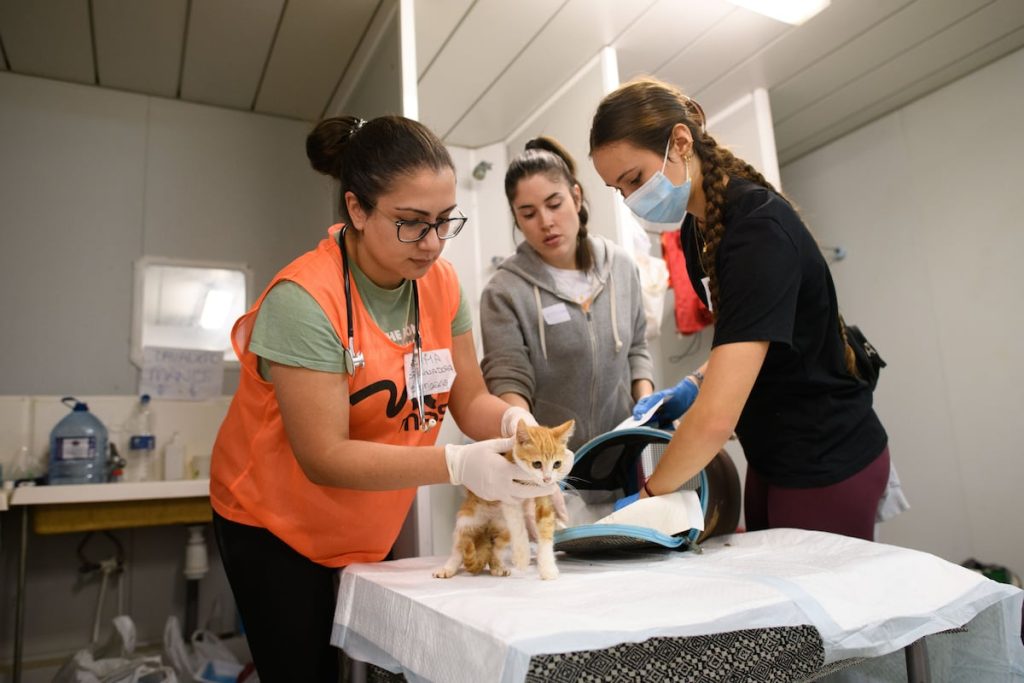The Sporting Benimaclet field is a place of constant activity and urgency, not because it is where a Second Regional football team trains, but because every minute counts in rescuing and managing new lives for hundreds of animals affected by the dana. Dogs, cats, and even turtles rescued from the devastated areas are brought to this space north of Valencia. Most of them arrive sick, nervous, starving, and disoriented. Many fortunate ones come with their owners who, devastated by losing their homes, can temporarily leave their pets in the camp. The main task of the hundreds of volunteers in the area is to ensure that each animal brought in sleeps in a new home that same night.
The follow-up of each animal that enters the camp is a top priority, according to Sandra Cervera, one of the organizers managing the various layers of operations deployed in the camp. The first step is directing the rescues. Teams of volunteers head out each morning to access the affected areas to locate pets reported by neighbors. Most of these operations are carried out by professional veterinarians, resulting in up to 300 dogs and 100 cats ending up in this camp. The risk is a constant concern in the camp as some animals arrive in poor health conditions, with diseases that can spread among other animals in the shelter.
Volunteers conduct medical examinations on the rescued animals, with precautions such as masks and gloves to prevent the spread of diseases. The animals are checked for internal microchips to determine their information such as name, age, and vaccination history. A unique identifying number is then assigned to each animal. Volunteers walk the vaccinated animals, acting as temporary guardians while waiting to find a suitable family to care for them. Potential adopters are screened through a process similar to a “Tinder for dogs and people”, with documents signed to finalize the temporary adoption.
By nightfall, all pets need to have a temporary family for a few days or months. Volunteer Carlos Duarte will be the new caregiver for 279, a weary-eyed Weimaraner who seems disoriented but trusts Carlos. The joy of adopting a pet is short-lived for Andrea and Brian, a Peruvian couple who decided to adopt a black female dog named Ada but later found out her real name is Tokio and belongs to a relieved owner. The coordination among the different stations at the camp has been a challenge, according to Alba Arévalo, the vice president of the sports club. Despite the lack of light in the tents, volunteers continue working with the help of mobile phone lights.
The work at the camp doesn’t stop even in the dark, as volunteers continue to process adoptions and coordinate with potential owners. The Vice President highlights the immense contribution of neighbors and professional veterinarians in making the project successful. The camp has not received any assistance from the Generalitat, but the community support has been crucial in managing the influx of animals and finding them new homes. Hope arrives for 282 as Miranda Fernández becomes the new owner of this German Shepherd mix, providing a ray of light in the midst of chaos and adversity.















